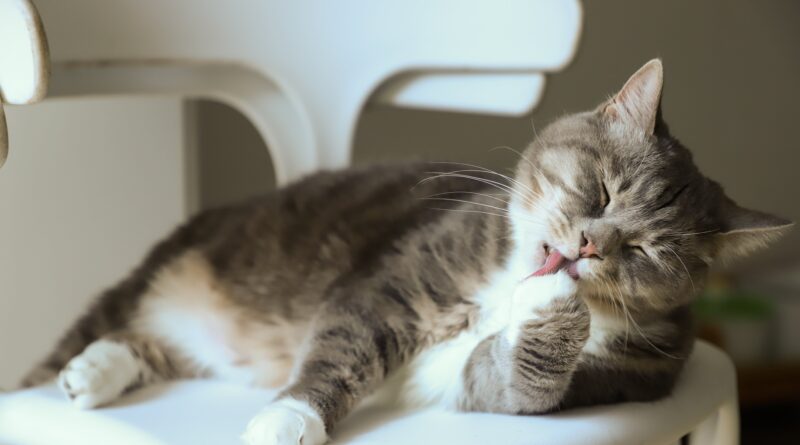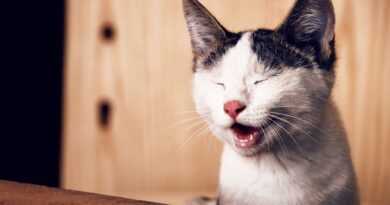Pawsitively Healthy: The Therapeutic Power of Cats in Reducing Cardiovascular Risks
In a world filled with animal lovers, cats hold a special place in our hearts. Their enigmatic personalities, graceful movements, and, of course, their soothing purrs have earned them the title of “man’s second-best friend.” But did you know that there’s more to these feline companions than meets the eye? Cats aren’t just adorable; they’re therapeutic too. In this article, we’ll explore the incredible benefits of having a cat, especially in the context of cardiovascular health.
Meet Your Feline Healer 🐾
Cats, often touted as independent creatures, have a remarkable ability to sense when we need comfort. This innate intuition isn’t just a matter of convenience—it’s deeply rooted in scientific findings. A study by Virués-Ortega and Buela-Casal, published in “The Journal of Nervous and Mental Disease” in 2006, delved into the psychophysiological effects of long-term human-animal interaction. Their research discovered that long-term relationships with animals, including cats, can moderate baseline physiological variables, particularly blood pressure.

Purring Your Stress Away 😺
One of the most intriguing aspects of cats is their purring. While it may seem like a simple and pleasant sound, it has profound effects on our well-being. Cat purrs have been known to reduce stress and anxiety levels, providing a sense of calm and relaxation to their owners. This harmonious hum can be your secret weapon against the daily hustle and bustle.
Heart-to-Heart: Cats and Cardiovascular Health ❤️
The scientific community has taken note of the remarkable connection between cat ownership and cardiovascular health. A study conducted by Adnan I Qureshi, MD, and his team discovered a surprising link. The study, “Cat Ownership and the Risk of Fatal Cardiovascular Diseases,” found that owning a cat, especially in the past, is associated with a significantly lower risk of death due to myocardial infarction (heart attack)[^2^]. The relative risk for heart attacks was 0.63, indicating a 37% reduced risk for cat owners as compared to those without cats as pets.
Paws for Prevention 🐱
While the exact mechanisms behind this connection are still being explored, it’s clear that having a cat can be a valuable ally in your journey toward a healthier heart. The stress-reducing and calming effects of cat companionship may contribute to this reduced risk of cardiovascular diseases. It’s essential to remember that cat ownership isn’t just about fluffy cuddles and playful antics; it’s about investing in your well-being.
A Cozy Companionship 🏡
The bond between a cat and its owner is truly unique. Cats provide companionship that goes beyond mere presence. They offer warmth, comfort, and a sense of security that can make the world feel a little less overwhelming. Their purring and affectionate gestures create an environment of calm and serenity, ideal for reducing stress and its related impacts on heart health.
The Science of Cat Cuddles 📚
The research by Virués-Ortega and Buela-Casal uncovered two major hypotheses to explain the psychophysiological effects of long-term interaction with cats:
- Stress-Buffering Effects: Cats provide noncritical social support, which helps individuals manage stress and anxiety. This type of support can moderate baseline physiological variables, including blood pressure.
- Classical Conditioning of Relaxation: Cats have a calming effect on their owners, leading to relaxation through positive conditioning.
These mechanisms may partially account for the long-term health outcomes observed in a number of human-animal interaction studies, supporting the idea that cats are not just pets but also therapeutic companions.
Meow-maste: Cats as Your Zen Masters 🧘♂️
So, next time you snuggle up with your furry friend, remember that their soothing presence isn’t just making your day better—it might be contributing to your long-term well-being. Cats are not only adorable and entertaining but also skilled in the art of stress reduction and heart health improvement. Embrace their zen-like qualities and consider owning a cat as a novel strategy for reducing the risk of cardiovascular diseases, especially if you’re in a high-risk category.
In conclusion, cats offer us more than just their companionship; they provide us with the gift of better heart health and well-being. With the benefits of having a cat, including stress reduction, lower risk of heart attacks, and an overall sense of peace, they are truly a therapeutic addition to any home. So, if you’re considering adding a furry friend to your family, remember that cats come with a purrfect prescription for a healthier heart and a happier life.
[Note: This article is for informational purposes only and does not replace professional medical advice. If you have concerns about your heart health, consult with a healthcare professional.]
[^1^]: Virués-Ortega, J., & Buela-Casal, G. (2006). Psychophysiological Effects of Human-Animal Interaction: Theoretical Issues and Long-Term Interaction Effects. The Journal of Nervous and Mental Disease, 194(1), 52-57. doi: 10.1097/01.nmd.0000195354.03653.63.
[^2^]: Qureshi, A. I., Memon, M. Z., Vazquez, G., & Suri, M. F. K. (2009). Cat Ownership and the Risk of Fatal Cardiovascular Diseases. Results from the Second National Health and Nutrition Examination Study Mortality Follow-up Study. J Vasc Interv Neurol, 2(1), 132-135. Link.




